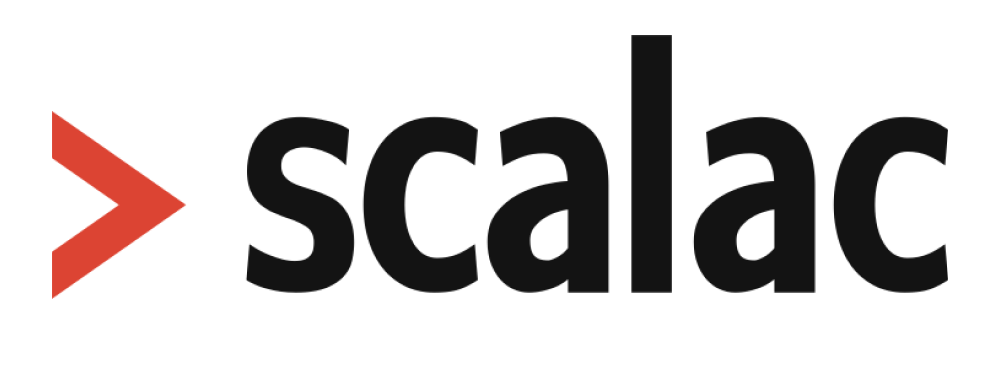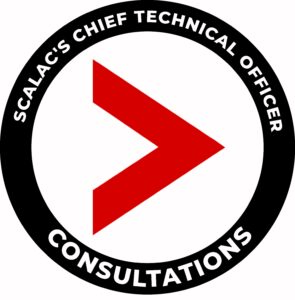
You ask, they answer. A checklist of questions to ask a software development company

It’s been decided: you want to relaunch your website, run a new mobile app, or simply start on a brand new business idea. In any case, you’ll need a bit of technology to support your plan. Instead of going in-house, you’ve opted to get a bit of a helping hand from a software development company. Well done – you’ve already taken the right first step towards success.
When opportunities come, questions follow too. If you’ve never collaborated with a software development company before then you may especially want to ask them about everything, or nothing at all. To make that process easier for you, we’ve created a special checklist of questions to ask a software development company.
#1 Can you actually help me?
You may want to pose this question first, bearing in mind the scope of collaboration, your experience and expectations, as well as the nature of the process. This simple question may actually help you identify whether a particular software development company is a good fit, and whether they even have the time or will for taking on your project. It may turn out that the software development company of your choice is fully booked, not interested in your project, or is constrained by some strict NDAs or incomplete clauses.
#2 What does the project workflow look like?
This question is actually more complex than you may think. The answer should not only be that it’s a spot on fit with your own project management style, but also that it’s well structured from the software development company’s side. If the workflow is well-thought out, this will be easily noticeable by you during a consultancy or a simple chat with the company.
You should be fully aware of how the project management style looks, what kind of methodology the software development company of your choice is going to use in your project, and how sprints or implementations look like, etc. The more detailed the questions you ask (especially if the first answer was rather generic), the better you’ll know what to expect, how much can be delivered, and also in which ways.
It also may turn out that the project management methodology that they use is not something you’re seeking to implement, or just not something that’s right for your preferences. This is the perfect chance to identify and attempt to resolve some potential bottlenecks if necessary.
It’s also worth asking about flexibility in the project workflow. Can you adjust something on the go, or would you, as the client, simply have to fit into their process? Can some elements be customized? How many rounds of implementation or corrections will be possible? It’s okay for you to be picky here – you need to know what you’re paying for, and you need to make sure that your expectations are well matched.
#3 How many people will be involved in the project?
It may not make a huge difference in the end, but it’s always good to know what the perspective of your software development company is. Ask them the question about how many people they’re going to dedicate to your project. This number should include developers who will be programming for you, but also some points of contact or an external project manager. The answer may also include some outside contractors (e.g. special graphic designers or copywriters who will be of help when it comes to the project). Make sure that the answer is clear to you, otherwise you may get an unpleasant surprise after the collaboration has begun.
Having too small or too big expectations may negatively affect the cooperation. So can not knowing the team personally, or not knowing who you’ll be dealing with on the project on a daily basis.
#4 What’s your strong point?
Even if you have identified it already (because this is usually shouted from the websites of many software development companies), this question is worth asking for many reasons. First of all, you’ll see if the company is still on that same wavelength – maybe there’s a brand new competence they’ve been developing for a while now, but haven’t mentioned yet. Secondly, you’ll make sure that they really do consider it as their strong point, not just claim that it is. If they have some proof (e.g. references and portfolio), this is only a plus point.
#5 What technologies are you specialized in?
It’s likely that you already know what kind of technology you’d find in your MVP or just a ready-to-go product, but sometimes you may need a bit of advice. Discovering which technologies a specific software development company is into can help not only with a one-off project, but also with potentially scaling it up or developing a brand new product in the future if desired.
Furthermore, the answer to this question can give you an overview of the scope of your project – if there’s one particular programming language you’re looking for but it should correlate with others, having all these competencies on board will simply be more effective.
#6 What’s your portfolio and experience with my niche?
Actually, you should have answered this question yourself way before you even start reaching out to that software development company. You should choose software houses to contact based on a set of your own criteria, including portfolio and services that reflect their experience.
#7 Do you have any references you can share with me?
A portfolio may scream and shout about their greatness, but the proof in the pudding – which in this case are references to each software development company. If they’ve completed some projects and have satisfied clients on board, then they may have already gained some great references, testimonials, or even case studies. If these things are not available in their communication or on their website, don’t be afraid about asking for them directly. You may also request a short call with or introduction to those clients who have used the services of that chosen software development company before. Ask about the outcome, but also about their experience of and overall satisfaction from the collaboration.
References can be make or break for your potential collaboration, so make sure that you check them accordingly whenever you have the chance. Every software development company should expect this question to be asked, so they should already be prepared to showcase or disclose a few projects with you.
#8 How do we communicate?
Communication is the key to success when it comes to any cooperation between an external software development company and the hiring firm. Make sure that the company you’ve chosen understands that quick, regular, and transparent communication is something to leverage.
Set up some methods and planned frequency of contact. This way, the software development company can know how often they can expect to receive some messages from you, and you will know when they should be available. Also arrange the working hours and times of communication in general (e.g. will you expect them to react to your suggestions at weekends, or is it okay for them to wait until Monday?) Find common ground and stick to it, but do so before you put your signature on the contract.
#9 What do you need from me?
Clients who decide on collaborating with a software development company usually want to have everything done out of sight. They would prefer to hand over all of the work and just get it back when the expected (and paid for) outcome is ready. However, this is not how some software development companies see the collaboration and it’s probably not how you should see it either, especially if you want the results to exceed your expectations.
You should be aware that your input will be priceless and will help the whole project be steered in the right direction, especially at the beginning of the collaboration. If a software development company is left without all of the required info, they may still deliver the project but it could lack the personal touch of your brand.
Asking a software development company “what do you need from me?” will give you more of an overview of your role in the project, but will also show you how that company treats every venture and how much they want you to be involved. This may also help you verify if the structure proposed by them is your cup of tea.
#10 How does the cost breakdown look?
You’re a client. You’re going to spend money. You want to know what you’re spending it on, right? It’s important to understand what the price includes and what you can expect to have done. Knowing what’s included in the costs and how it’s calculated (without entering into the topic of price margins) will help you better understand the structure of the project, responsibilities, and requirements.
#11 Why do you think you’ll deliver?
Obviously, you’re going to mainly talk about money, effects, and process. However, asking such a question will provide you with a bit of a psychological and “human-touch” background. You’ve selected a specific software development company for some reason, but what do they think the reason is? Why does that software development company think that they can deliver for you? What, in their opinion, distinguishes them from the competition?
The outcome of such a question may be really surprising and even out of the box, so it doesn’t really hurt to ask it when you have the chance.
#12 What if you don’t deliver/I’m not happy with the outcome?
Tricky one. And it may paint you as a potentially troublesome client, however it’s better to sort it out now than after you get something you’re disappointed with.
It’s possible that a particular software development company has some processes for such a situation in place – some of them will give you some extra working hours for a lower fee, some may run an extra round of implementations. But there may be companies who don’t even foresee and plan for such an occurence (and that’s a mistake). It’s okay to ask!
Do I need to ask everything?
Well, obviously, you don’t need to ask all of these questions. However, the more questions you ask before you seal the deal, the better. First of all, you will eliminate some possibilities of misunderstandings or unpleasant situations on the go. Secondly, you can be assured that you and your software development company are looking in the same direction. Finally, it’s also important for the software development company to verify whether you should really collaborate together.
We hope that our quick guide has answered your questions, or rather provided you with some questions to ask now!. If you’re looking for the right fit as your software development company, you’re always invited to reach out to us. We’re happy to go through your needs and expectations, then match them with our own experience and skills. Shall we?
Read also











